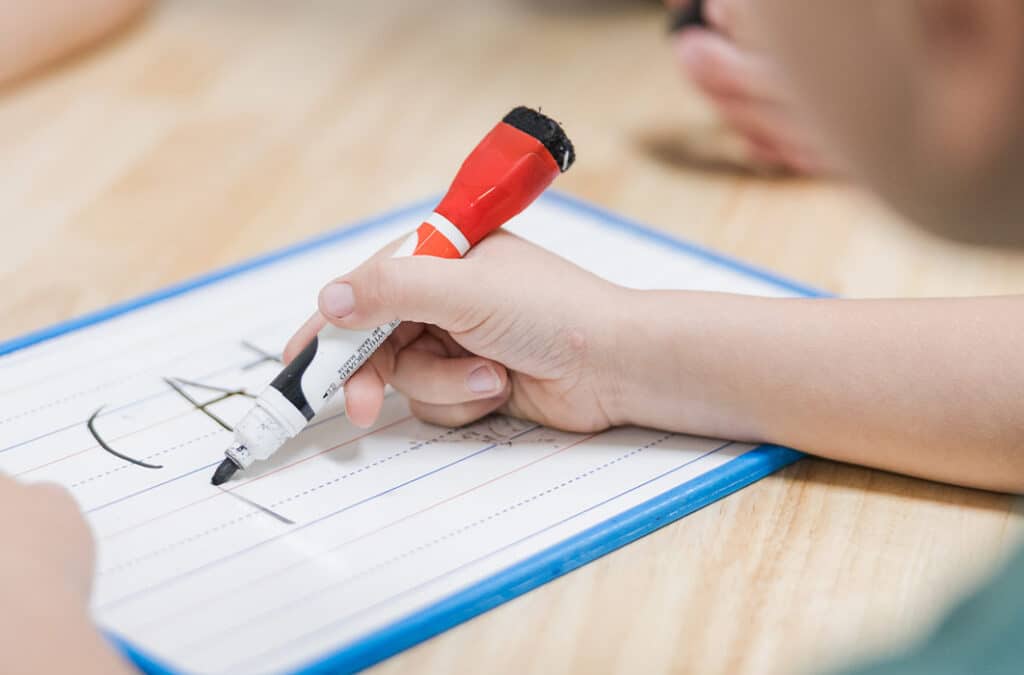Handwriting is a key skill for children at school, but when a child struggles with pencil grasp, it can affect both their confidence and their performance in the classroom. One of the most common reasons children are referred to Occupational Therapy is difficulty with handwriting or holding a pencil in an awkward way.
What is a functional pencil grasp?
A functional pencil grasp allows a child to write neatly, comfortably and at a pace that keeps up with their peers. It involves using the small muscles of the hand and fingers to control the pencil with precision and without fatigue. An awkward or inefficient pencil grasp often leads to poor letter formation, slow writing, and hand pain.
How does pencil grasp develop?
Pencil grasp develops over time, moving through several stages. In the early years, children often use whole-hand or four-fingered grasps. By around 4 to 7 years old, most children develop a more refined grasp, such as the dynamic tripod or quadrupod grasp. These mature grasps allow for better finger movement and writing control.
When to seek help
If your child holds their pencil in an unusual way but is keeping up in class and writing clearly, it may not be a concern. But if they struggle with fatigue, slow writing, poor legibility, or hand pain, especially as writing demands increase, an OT assessment may be helpful.
How OT can help
Occupational Therapists support children to build the strength, coordination and motor planning skills needed for a more efficient pencil grasp. Therapy might include:
- Fine motor games to improve finger strength and control
- Activities to build hand endurance
- Teaching correct hand positioning and pencil grips
- Using tools like pencil grips or adapted writing materials
- Supporting overall posture and core strength to improve hand use
OT sessions are fun, engaging and tailored to the individual needs of each child. With the right support, children can gain confidence, reduce fatigue, and improve their handwriting performance.
If you’re concerned about your child’s pencil grasp, an early intervention can make a big difference in their comfort and success at school.
